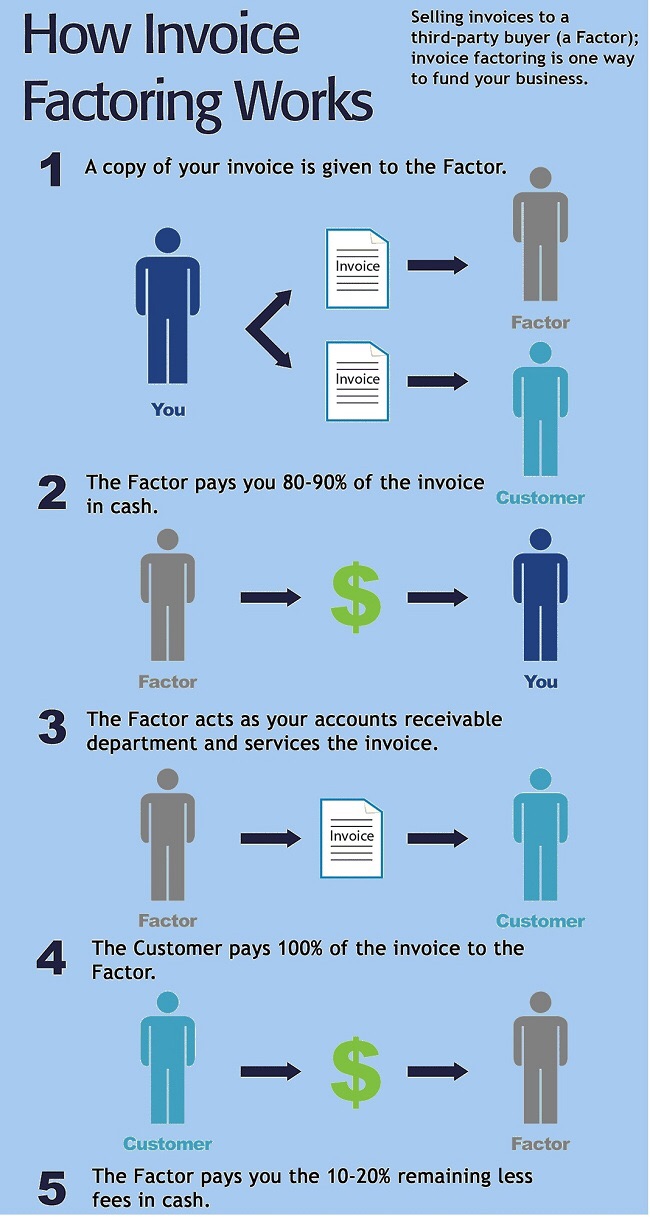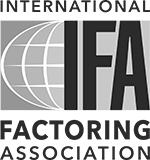Factoring 101

Usually the first question I get when I say my company does factoring is “What’s factoring?”.
What is factoring? Factoring involves the sale of invoices to a factoring company. A factor will provide advances against these purchased invoices and will also take care of the collection of these invoices.
Why do companies sell invoices? Companies that are growing often can’t wait for payment from their slow paying customers. Through factoring, companies can quickly convert their invoices to cash in order to meet their immediate financial demands like paying employees, paying suppliers or paying rent.
What is an advance? When a factor purchases invoices from a client, the client can borrow up to a certain percentage of the invoice amount from the factor. This is called an advance and enable the client to borrow up to 80% to 90% or more.
How can I afford to use a factor when my profit margin is very low?An increase in sales realized through factoring can result in higher net income. Companies should weigh whether they can increase their net income/profit by working with a factor. Overhead costs do not necessarily increase in proportion to sales.
Who can factor? Factoring is not limited to a specific industry. Any company that sells products or provides services on terms is a candidate for factoring.
Why should I not go to the bank? Banks’ credit requirements are often much stricter than a factor. Banks also require financial statements that reflect several years of profitable operations and positive cash flow.
What is a factor guarantee? The easiest way to understand factoring is to think of it as a credit card for the business. When a customer makes a purchase and presents his credit card, the merchant transmits the information and requests a credit approval. If the amount is within the purchaser’s credit limit, the credit card company approves the transaction and agrees to accept the risk in case the purchaser is financially unable to pay. When a factor approves a customer and issues a payment guarantee, the related invoices are called approved or non-recourse accounts.






